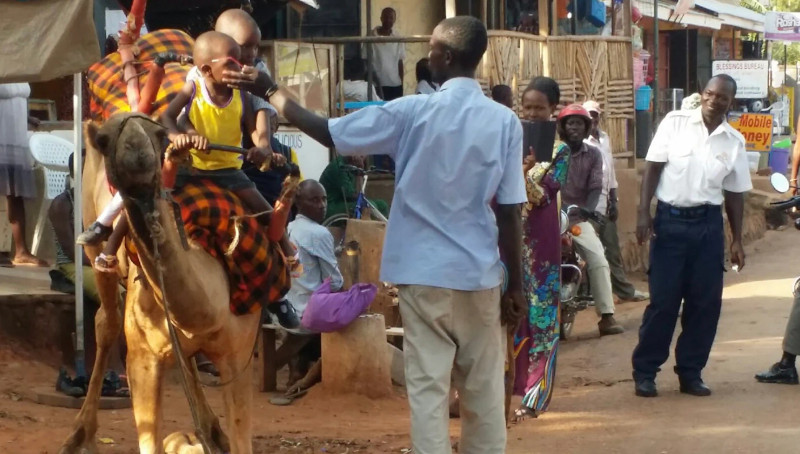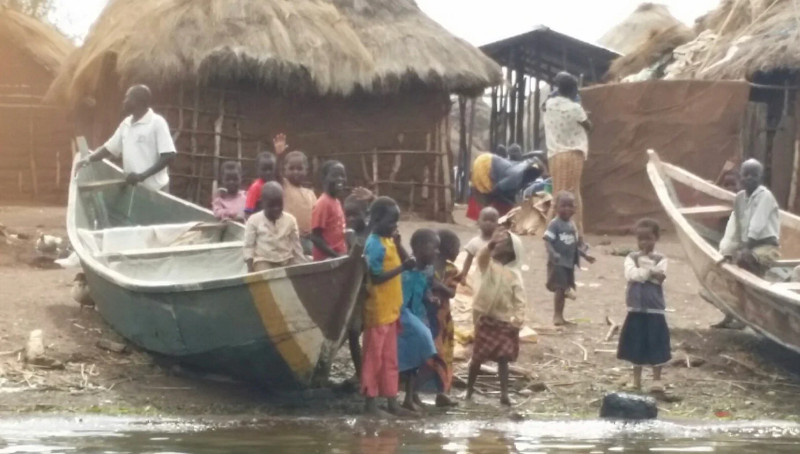The Works We Do
Education
Uganda’s national schools face a shortage of teachers due to financial constraints. Although the government provides free primary education for up to four children per family, most families have eight to nine children, leaving many without access to schooling. Even those eligible often struggle to attend due to high transportation costs, as schools are located far from their homes.
Secondary education is even more expensive, with tuition fees, textbooks, and other costs making it unaffordable for many. Financial difficulties also lead to underpaid teachers, affecting the quality of education. As a result, families who can afford it often choose private schools with better resources. Unfortunately, this leaves children in rural areas, fishing villages, islands, and low-income urban communities without access to education, leading to illiteracy and perpetuating the cycle of poverty.
Uganda is a linguistically diverse country, with around 50 languages spoken across different regions. Communication is challenging as people in the South, North, East, and West primarily speak their own languages. Sharing Life aims to build and support schools for underprivileged children, offering them hope and opportunities to become valuable contributors to their communities, their country, and the world.
Re-education for current pastors & seminary student aid
In Uganda, the role of a pastor is highly esteemed and respected. As a result, many Christians aspire to become pastors. However, due to this aspiration, numerous individuals take on pastoral roles simply by participating in church activities, often with only a basic understanding of the Bible. Unfortunately, some of these individuals, lacking proper theological knowledge, mislead believers by claiming to have prophetic or healing abilities, fostering superstition. This frequently shifts the focus toward blessings, mysticism, and material wealth rather than sound biblical teaching.
Sharing Life works to re-educate pastors, ensuring they lead their ministries according to biblical principles. We provide financial assistance to those who have not received formal theological training, enabling them to attend seminary. Additionally, we support aspiring pastors within the Christian community by conducting interviews and assisting in the establishment of seminaries, helping to develop faithful and upright leaders for the church.

Uganda Karungu Village Project
Sharing Life Society
In Karungu and five neighboring villages, a comprehensive development project has been planned across nine acres of land. The design includes a kindergarten, elementary school, secondary school, technical school, dormitories, a medical center, a church, an auditorium, offices, water tanks, well pumps, restaurants, toilets, two guest houses, and playgrounds. All necessary permits have been approved.

Currently, a warehouse has been built, and three kindergarten and first-grade classes are being taught by four teachers. The students learn while sitting on a dirt-covered floor. The warehouse also serves as a temporary church, used for worship on Sundays and weekdays after school. On Sundays, villagers gather to worship under the leadership of a pastor. Construction of the church is underway, with the foundation and walls partially completed. However, progress has been halted due to a lack of funds.
The Workplaces
Republic of Uganda
Africa

capital:
Kampala
population:
(2025 est.) 47,487,000
area:
241,553 km²
Religions:
Roman Catholic (36.2%)
Anglican/Church of Uganda (29.0%)
Pentecostal/Evangelical (14.3%)
Islam (13.2%)
Others (7.3%)
Languages:
English (Official)
Swahili (Official)
30+ unofficial languages
date of dominion:
9 October 1962
President:
Yoweri Museveni
Gross Net Income (GNI):
47.4 Billion USD
GNI per Capita:
980 USD
Kiwanuka, M.S.M., Ingham, K., Lyons, M., Kokole, O.H. "Uganda." Encyclopedia Britannica, March 1, 2025. https://www.britannica.com/place/Uganda.
Geography
―
Uganda is a land-locked nation, bordering Kenya to the east, Congo to the west, Rwanda to the southwest, Tanzania to the south, and Sudan to the north.
Why did we choose Uganda?
⸻
After gaining independence from Britain in 1962, Uganda was a wealthy and stable nation. Winston Churchill, captivated by its beauty, famously referred to it as the "Pearl of Africa." However, by the mid-1980s, the country had been devastated by tribal conflicts, political corruption, brutal massacres, and military dictatorship, ultimately leading to economic collapse.
Despite enduring immense suffering, Ugandans have shown remarkable resilience. However, the nation continues to face serious challenges, including overwhelming foreign debt, the widespread prevalence of AIDS, extreme poverty, a high number of orphans, and ongoing concerns regarding the human rights of women and children. Since 1971, Uganda has remained among the 50 poorest countries in the world, as classified by the United Nations.
Sharing Life
⸻
Supports schools, churches and organizations of Uganda that are in need
- Struggling Schools and Churches in Karungu, Masindi district
- Wakiso Central Church in Wakiso District
- Fort Portal Kihumuro Village Church
- Nansana Secondary School and orphaned students
- Orphaned girls in Grace Villa
- Kibakwe Secondary School
- Kasensero Church
- and more
We We maintain close connections and provide support to the following communities
- Namugongo
- Galagatia
- Langera
- Kitoko
Above communities are impoverished island communities in Lake Victoria, lacking basic resources and relying on contaminated water in an unstable environment. Residents are highly vulnerable to disease and remain marginalized due to limited access to education
share the love!
―
Karungu Village lacks access to clean drinking water, causing many residents to fall ill from consuming contaminated water. With no schools, churches, or medical facilities, both villagers and children face significant hardships. However, despite these challenges, the children remain eager to learn. In contrast, many adults struggle with alcoholism due to the widespread availability of alcohol made from bananas. We initiated this project to share the Gospel with them, guiding them toward a better way of life.